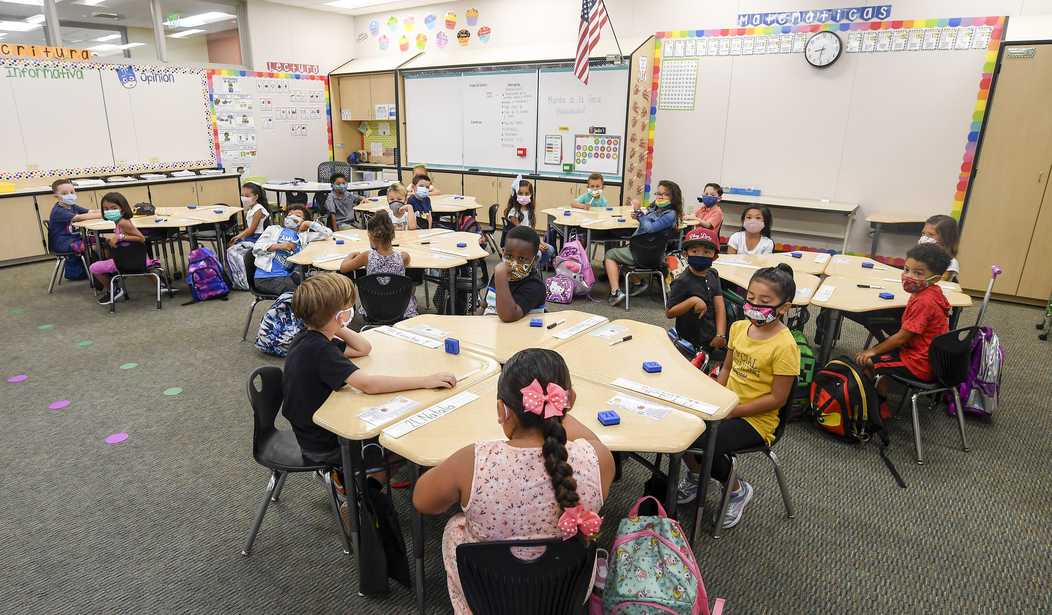When Ron DeSantis and the Florida legislature moved to block sexually explicit books and content for school children, I fully supported the idea. The same goes for material discussing “gender identity” for children who weren’t even reaching the age of puberty. The trend toward sexualizing children in their formative years is beyond disturbing, and such matters are best handled by parents and guardians. But the latest proposal in the Florida legislature just seems to be a bridge too far and pulls the debate off in the wrong direction. A new bill moving forward in the Florida House would ban the discussion of menstrual cycles with girls in elementary school. This proposed law is drawing a lot of criticism and for good reason. (Associated Press)
Legislation moving in the Florida House would ban discussion of menstrual cycles and other human sexuality topics in elementary grades.
The bill sponsored by Republican Rep. Stan McClain would restrict public school instruction on human sexuality, sexually transmitted diseases and related topics to grades 6 through 12. McClain confirmed at a recent committee meeting that discussions about menstrual cycles would also be restricted to those grades.
“So if little girls experience their menstrual cycle in 5th grade or 4th grade, will that prohibit conversations from them since they are in the grade lower than sixth grade?” asked state Rep. Ashley Gantt, a Democrat who taught in public schools and noted that girls as young as 10 can begin having periods.
A separate clause in the bill would require schools to teach children that “a person’s sexual identity is determined biologically at birth.” That part is probably fine if the instruction is provided when most children are approaching the age of puberty. Prior to that, such as in kindergarten, it would needlessly spur questions that families are not yet prepared to deal with.
But the other portion of the bill mentioned above seems entirely misguided. Educating young girls about their approaching menstrual cycle isn’t “sex education.” It’s biology. Granted, it would be nice if all families had these discussions with their girls ahead of time so they are prepared for the physical changes that are on the way, but that doesn’t always happen.
It’s also worth noting that young girls are known to begin menstruating by the age of twelve (typically 8th grade) and sometimes as early as eight (third or fourth grade). Age 12 is two years sooner than when it typically happened in the early 1900s and six months sooner than just 30 years ago, most likely due to dietary changes leading to the production of adult hormones sooner in life. This is just a modern reality that families have to deal with.
I think we’re running into more of a gray area if the curriculum rolls in warnings about potential pregnancy after puberty. But even then, it seems as if that could be handled in a way that doesn’t go entirely into adult areas of sex and sexuality, focusing instead on biological realities.
It’s not that I don’t understand the underlying political realities here and largely sympathize with them. Florida is grappling with the task of bucking national trends and defending parental rights. They also want to prevent public schools from turning into grooming stations where children are prematurely shoved into potentially confusing conversations about adult relationships. But it’s difficult enough for children to navigate the journey through puberty as it is, and we’re doing young girls a disservice if they aren’t being prepared as well as can be managed. Just don’t start inviting the boys to the class in the name of “gender fluid awareness” or whatever we’re calling it this month.








Join the conversation as a VIP Member